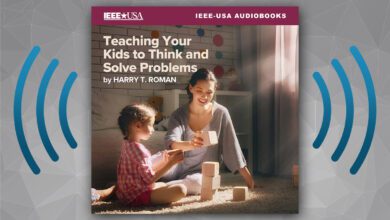
Best Practice #1
If you’ve been reading this column, you know I champion two basic practices that improve communication.
The first such practice is listening-that is, paying full attention. We often listen sporadically, skipping impatiently over parts we don’t really know if we should skip over. Or we stop listening while we’re planning what we’re going to say next. The other person is still talking but we’re no longer listening.
Real listening, however, is a practice of paying thorough attention to someone who is speaking. Among its many good qualities, good listening is a sure-fire way to accelerate comprehension. It’s is also a sensational way to improve relationships with anyone-and colleagues most definitely-because listening indicates respect.
When someone really listens to you, patiently, without interrupting, how does that make you feel? I bet your answer is “Valued and appreciated.” How about when someone is obviously not listening to you? How does that make you feel? Respected and valued? Um, no.
Real listening is also a great way to defuse arguments. Good listeners don’t leap to misunderstood conclusions which then leads to disagreement, which then leads to disputes which then leads to stalemates. Verbal stand-offs result from terrible listening, while a discussion between two good listeners never ends at an angry impasse.
Best Practice #2
Another best practice is rehearsing. If you’re going in to a presentation or a difficult conversation, or you’re going to be teaching something complex, be prepared. Winging it, especially when the stakes are high, is a terrible idea. Instead, know what you’re going to say, and get comfortable with it before the moment arrives. Your job as a speaker is to tune into whomever you’re talking to, whether you’re talking to 100 people or only one or two. You need to make sure they’re getting it and that you area able to adjust on the fly if confusion or disagreement arises. Without preparation, you’ll be tempted to keep talking at them even after it starts to go south. Rehearsing is the prep work that will enable you to change course or interact with people who look confused.
It’s also good to rehearse prior to dicey conversations. If you know you’re heading into a difficult conversation that’s likely to erupt in disagreement, don’t go in cold. Prepare what you’re going to say, and think through what the other person might say so you won’t be thrown by it. Prepping can help you stave off frustration, even anger, and this can help you control your tone and can help you not exaggerate or blame other people.
Despite the familiar saying, practice does not make perfect. But it does make better. It helps you to be readier and steadier.
One Common Requirement: Concentration
Listening and preparing, the two communication best practices, have one crucial thing in common: both require concentration. You can’t listen if your mind is hopping around between thoughts and distractions, somewhere other than where you are and who you’re with. And you can’t prepare or rehearse if you don’t set aside time to “¦ dare I say it? “¦ be alone without interruptions so you can focus.
Concentration is a mind that’s focused, undistracted, unrattled, and unshakeably attentive. It’s a mind that is strong, stable, and clear. If that’s how you are most of the time, you can stop reading now. If that’s not how you are most of the time, please continue.
The Enemies of Concentration
Concentration has two enemies: distraction and discontent. They sap our ability to focus by drawing the mind all over the place. Together, they’re the root cause of skittish attention. It’s this combination of distraction and discontent that makes our mind dart around like a young pup chasing butterflies in the garden instead of calmly, unshakeably focusing our attention where we want it.
Discontent and distraction are related. Without discontent there would be no distraction. That is to say, when we’re agitated, nervous, restless, stressed-out or bored (i.e., discontent), we go looking for some distraction to pacify the twitchy mind. Some of us use work as a distraction, hoping that merely being productive will offset stress. Others check email, text messages, Facebook, Youtube-anything that technology has to offer as long as it’s diverting.
We hear a lot about things like distracted driving and distracted behavior in meetings and such. But it’s not enough to say that distraction is the enemy because that alone isn’t the problem. The problem is the mind of discontent. The problem is we’re jumpy, worried, distraught. We’re anxious, impatient, irritated. These are all aspects of discontent, driving us to distraction.
So, now, where was I? Oh yes. Concentration.
Listening depends on concentration. So do rehearsing and preparing. So, for that matter, do many other things-such as problem-solving, decision-making, and budget-balancing. Even love! But we’re just talking about communication for now. To be a better communicator, you have to be a better listener and be willing to prepare for certain conversations. That takes concentration. Concentration is power, and it requires attention. Attention requires freedom from distraction, and distraction springs from discontent.
But wait. Isn’t discontent a cultural norm? In fact, aren’t we supposed to be unhappy about things? As a culture, we’ve come to think of being discontent as a virtue, as the thing that somehow inspires us to greatness. We think that the opposite of discontent is complacent, and no one wants to be that! But in fact the opposite of discontent is not complacence. The opposite of discontent is gratitude. When we genuinely appreciate whatever good fortune we have, we’re far less discontent.
Many of us have a habit of walking around the working taking inventory of things that bother us, meanwhile ignoring all that’s great. Thinking we have to work on only the irksome stuff, we think the good stuff is already handled and can be taken for granted. It’s why I’m sure you hear “That really sucks!” far more often than you hear “That’s really wonderful!”
Not to say we always overlook the good stuff. Occasionally we take stock of the good things-food on the table, our healthy children, our car that started this morning (unlike many cars), the roads to work that were paved (unlike many roads), and so forth. But we rarely stay there for long. It’s a habit, an ingrained habit, to catalog what’s awful and revisit it constantly-fortifying our discontent. Meanwhile, we often take for granted what we really do have going for us, the stuff in the plus column, as we relentlessly sharpen our ability to focus on the stuff in the minus column.
So perhaps that’s a bit of advice you weren’t expecting: if you want to be a better communicator, be grateful for whatever good fortune you have which is likely to far outweigh misfortune when you take a closer look. That practice will help you fend off restless dissatisfaction and make it easier to resist distraction and, therefore, easier to focus and concentrate.
Simple, no? Yes. But not necessarily easy, I admit. One thing I’ve learned in my years of working with engineers is that they like nothing more than to be challenged, especially when the challenge is a logical one as this one, I believe, is: direct your thoughts; steer towards contentment, away from distraction, and concentration improves. Voilà .
One Last Thought
By the way, it isn’t necessary to be discontent in order to be inspired to make progress. That’s a myth.
Necessity is the mother of invention, not unhappiness.






